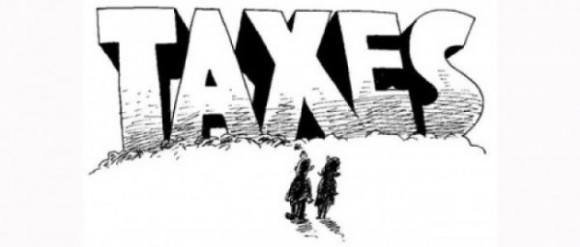
In comparison with the Left, conservatives have always had problems sharing information and rallying the troops in unison around a cause. We watch as liberals and progressives move in one collective, synchronized body like a swarm of sentinels in The Matrix, overwhelming the web with Upworthy shares, unquestioning of the substantive accuracy of the emotional videos. At the same time, conservatives and our libertarians allies are frustratingly uncoordinated in our endeavors.
In an effort to connect right-thinking writers and bloggers from all across the fruited plains and to disseminate among them information vital to current policy debates, conservative groups have organized conferences. I was fortunate enough to be able to attend one this past weekend put on by the Franklin Center for Government & Public Integrity.
Such conferences — the theme for this one was, “The Tax & Regulatory Impact on Industry, Jobs & The Economy, and Consumers” – take a two-pronged approach: on the one hand arming conservatives and libertarians with the latest and most relevant facts about a set of policy areas, while on the other teaching techniques that help bring the message to a larger audience.
The policy focus of this particular event was taxes and regulations and their impact on industry, jobs, the economy and consumers.
Phil Kerpen, president of American Commitment and author of Democracy Denied, focused on the circumvention of Congress by President Obama and the executive branch broadly by the use of executive orders and regulations. Finding the Cap and Trade carbon emissions policy impossible to pass in Congress, Kerpen explained, the Obama executive branch has instead de facto banned coal plants by requiring emissions standards that cannot be met except by technology that is not commercially available.
Obama himself has belied the notion that the so-called Affordable Care Act is the law of the land by unilaterally extended deadlines for mandates among other modifications to the law. Further, he has stretched the definition of recess appointments to hilarious lengths by making them a day after Congress had been gaveled into session.
What had been abused and manipulated into a political tool, the president was now literally using in contradiction to its own name.
Following Mr. Kerpen’s informative talk, bloggers heard from Verizon and AT&T about the technological advancements on the horizon that will make our lives easier and help us live longer and healthier. Looking the future in the face ought to make one wary about stifling innovation with absurd regulations, but unimpeded, government, in the form of the FCC, has pursued its passion for equality by spreading the airwaves around and considered breaking up “trusts” in the most competitive, provider-filled communications market in the world – the United States.
Jim Pinkerton, a former member of the Reagan and George H. W. Bush administrations and current Fox News contributor, gave a fantastic history of the last fifty years of tax and budget policy. Beginning with JFK’s tax cuts, he recounted the evolution of supply-side economics, and then compared our once-globally competitive tax structure with our currently-lagging tax policy today. Pinkerton advised bloggers to sell our ideas by making tangible the intangible, saying that if we don’t like ideological direction of the world, we can and should change it.
Stephen Moore, the Heritage Foundation’s Chief Economist, gave a rousing presentation on the free market filled with tweetable lines. Primarily, he focused on oil and gas, the one sector of the economy that is booming in our sluggish economy. North Dakota, which is experiencing an energy boom, has been misleading been attributed a 3% unemployment rate. Instead, Moore explained, it’s in the negative: 15,000 available jobs have yet to be filled.
Moore further argued that environmentalists ought to be exposed for the frauds they are. If they really wanted to lower greenhouse gas emissions, they would support fracking for natural gas, which emits comparatively little carbon. The United States, despite not signing onto international agreements to reduce emissions, has cut them more than any other country in recent years.
By 2020, the United States is expected to become a net exporter of energy rather than a net importer. This is in spite of Obama’s policies hampering oil production on public lands. The rest of the economy, sadly, is not withstanding the weight of big government as well. If the United State experienced the same growth today as we did during the Reagan recovery instead of Obama’s anemic one, the average family would have $14,000 more in income every year. That would alleviate a lot of suffering.
On the communications training side, attendees were first treated to a presentation by Adam Guillette of the Moving Pictures Institute. Guillette noted, as many conservatives have come to realize while conservatives have facts and logic on our side, while we can win an economic debate every time, the Left simply tells stories. Conservatives thus come to a policy or electoral debate having lost half the battle, the audience already having imbibed a liberal worldview culturally. Guillette argues that conservatives need heroes whose stories we can tell.
Finally, Caleb Brown of the Cato Institute and Brandon Stewart of Free Think Media talked about using multimedia – especially video – effectively. They advised a concise message and a voice well-tailored to the audience. Good audio quality is must, or listeners will tune out, and video subjects must be lit well.
The attendees to this Franklin Center conference were unanimous: it was a great experience. Such conferences put conservatives on the same page, connect us and create networks to make viral the stories of people versus big government that would otherwise not be heard. I would encourage all manner of conservative groups to make these kinds of conferences happen often.
The movement needs coordination in order to compete with the Left and this is one of the ways forward.
